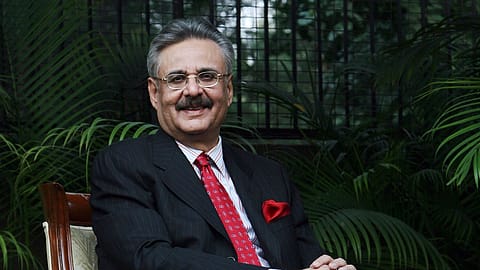‘Yogi’ Deveshwar: The man who saw tomorrow
The passing away of ITC chairman Y.C. Deveshwar marks the end of an era for ITC which he saw as an Indian multinational. Sanjiv Puri has now been named the new chairman and MD of the company.

It was not easy to break into ITC as a journalist when I took charge as resident editor of a mainline financial daily and moved to what was then Calcutta, in end-1996. Those were turbulent times, and ITC, clearly the biggest company still to be headquartered in the city, was locked in a grim battle with the Enforcement Directorate (ED) over alleged irregularities. Yogesh Chander Deveshwar had just stepped in as chairman of the company immediately after I landed, succeeding Krishan Lal Chugh, and there was high drama around ITC, but not just because of the problem with the ED. ITC’s single largest shareholder, British American Tobacco plc. (BAT), was also at odds with the company over strategy and there were fears that BAT would increase its stake in ITC to drive strategy on its own terms.
Even as all this was playing out, I knew that if I were to make any headway in Calcutta for my paper, I had to make inroads into ITC. With a little help from a director who had just been inducted into the ITC board and who I knew well, I managed to get a toehold into Deveshwar’s ITC. After putting in several requests for meetings, I finally managed to meet the man who would eventually become the longest-serving chairman of the company. Deveshwar’s unmissable baritone hid an affable, friendly persona, and we struck up a cordial relationship, with me prodding him every now and again on his plans for ITC. ITC’s board meetings were national news at the time, thanks to the ED and BAT battles, and gradually, over time, as I reported on those meetings, I was able to understand Deveshwar’s vision for the company.
Deveshwar was closed to most journalists at the time given the issues he was grappling against, but over time, he did begin opening up to me (strictly off-record) on how he planned to take ITC forward. It was clear even then that this was a man passionate about creating an Indian multinational which would compete on equal footing with global MNCs. It was a bit of a routine: I would sometimes land up at his office at the end of the work day and discuss what he thought was the best way forward for the company. Sometimes, he was gracious enough to call me to his home after a work day and we would chat over chocolates.
Deveshwar was clear that ITC would need to diversify its business, since it was heavily dependent on tobacco. Though it had paperboards and hotels as other businesses, Deveshwar knew that over time the share of tobacco had to come down in the overall revenue pie if ITC was to future-proof its business.
Under Deveshwar, ITC began rapid and firm strides towards diversification, and his strong leadership ensured he carried the board along in whatever he did. The BAT threat gradually faded away, and Deveshwar’s ITC began building its base as an Indian multinational. ITC’s annual general meetings were big events in Calcutta and Deveshwar unveiled a theme each year not just relevant for ITC but also for the nation. Corporate governance, sustainability and Indian-ness were his favourites. At the AGMs, Deveshwar was clearly the star, towering over everyone else, with the news-hungry media making a beeline for him after the AGM was over.
He was clearly a man who forged lasting relationships. Some years later, after I had moved back to Mumbai with another business daily, I met him in Davos for the World Economic Forum annual meeting in 2008. I had not been in regular touch with him for quite a few years, having shifted base from Calcutta. Deveshwar greeted me with a warm smile, and it was almost as if we would sit down again and chat about ITC like the Calcutta days. I went up to him and offered to give him my number, and said I would love to come and meet him again soon after we returned to India. He immediately fished out his phone and showed me my number in it, with his trademark smile.
Y.C. Deveshwar—YCD to most and ‘Yogi’ to friends in corporate circles—clearly was a titan of corporate India. A master strategist, a firm and decisive leader, and a man who could see ahead of his time. Today, the ITC he has created is a giant in the FMCG space as well, with cigarettes and hotels co-existing. It is a major player in the foods business and is making rapid strides in that space. During Deveshwar’s stint as executive chairman, the company undertook moves to consolidate businesses, extend brands like Wills beyond cigarettes, and sell non-core businesses like financial services. Deveshwar knew well what would work for the company, and the shareholder returns ITC has generated over the years during his tenure bear testimony to the robustness of his strategic thinking. His tenure saw shareholder returns of 23.3% compounded annually, and revenues growing from ₹5,200 crore to ₹51,500 crore.
Recommended Stories
In 2017, Deveshwar moved to the position of non-executive chairman, and only in the middle of last year, the ITC board extended his tenure further from 2020 to 2022 so that he could be around to mentor the top management of a rapidly growing and more complex ITC.
With his passing away at age 72, an era ends at ITC. But the future-proofing of ITC has already been completed. An Indian multinational has been created, with the seeds sown long before “Make in India” became a buzzword.